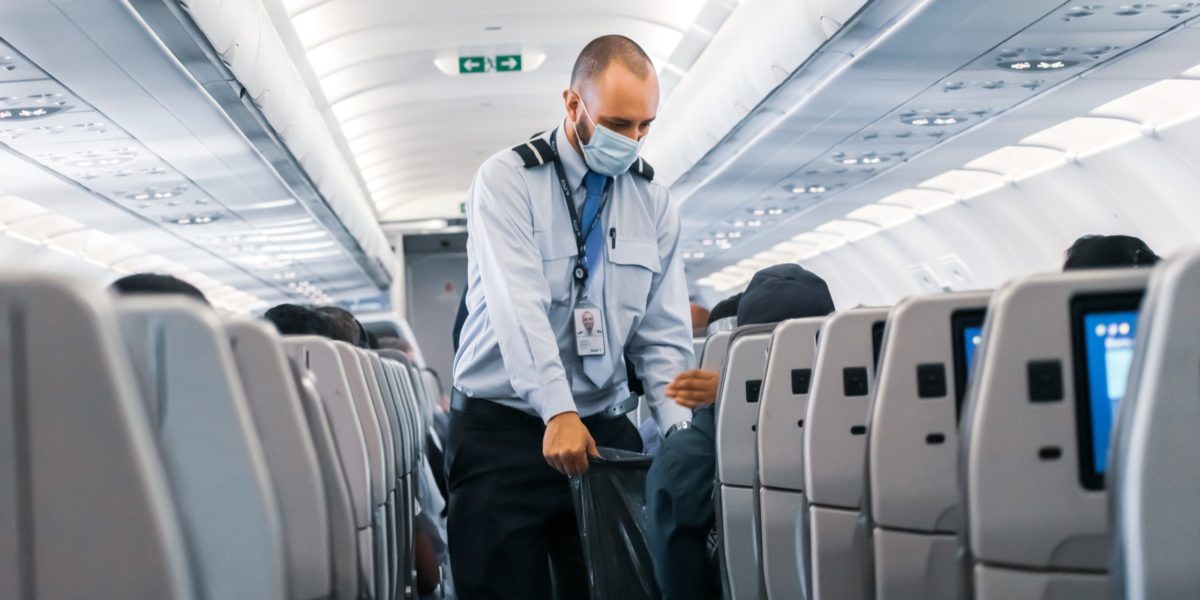As chaos grips airports, flight attendants are shouldering the burden of frustrated passengers. The Canadian Union of Public Employees (CUPE) released a statement July 5 condemning the growing abuses towards flight attendants.
CUPE said they were “appalled” by the reports of abuses ranging from verbal insults to punching, grabbing and kicking. Although CUPE does not have a concrete number on how many instances of abuse occurred, they said there is a clear trend of these abuses increasing.
These abuses are coming at a time of large flight delays, flight cancellations and loss of luggages. According to an article by Bloomberg, travel bottlenecks are causing the issues which forced Air Canada to delay 65 per cent of its flights on July 8 and July 9. CTV news wrote that according to a new survey by Leger, 53 per cent of Canadians are concerned about airport travel.
Cabin crew members are urging passengers to remember that many of the inconveniences travelers are facing at airports are not in their control.
“We acknowledge the frustrations of passengers when they experience delays and cancellations, because as flight attendants, those things disrupt and make our lives harder too – and we are experiencing them every single day,” CUPE wrote. “However, there is no excuse for the abuse our members are enduring, and there is no excuse for inaction on the part of the federal government and employers.”
The CUPE statement urged the government and employers to improve staffing and working conditions to alleviate bottlenecks at airports. However, the issues do not only exist in airports. Beyond bottlenecks, flight attendants are facing abuses as passengers adjust to traveling during the tail end of the pandemic.
Wesley Lesosky, president of CUPE’s Airline Division, said issues with mask compliance have also been a leading cause of aggression from passengers.
“We have a lot of reports coming in of flight attendants being verbally humiliated, called names, pushed. All that kind of stuff seems to be escalating,” Lesosky said in an interview with rabble.ca. “I think it’s a bigger issue because there’s so much confusion around vaccine mandates coming in and out of different countries, and mask compliance issues on a Canadian aircraft opposed to a US aircraft.”
Laws surrounding mask mandates or vaccine requirements on Canadian aircrafts are beyond the control of the cabin crew. Lesosky said that confusion can be mitigated if Transport Canada makes the same rules apply to all flights coming into Canada, regardless of whether the airline is Canadian or not. Lesosky said these measures can create a more consistent experience for passengers which may reduce the abuses against cabin crew.
Reporting abuse is key
As crew members wait for staffing changes to alleviate bottlenecks and COVID-19 regulations to become more consistent for all people coming into Canada, Lesosky said the best course of action at the moment is to report any instances of abuse.
“The best thing for flight attendants to remember in a highly regulated industry, is to report it [instances of abuse],” Lesosky said. “I think that’s a big thing, flight attendants seem to have this huge tolerance and it takes something like a repetitive incident before they’ll feel the need to report it. But we can curb a lot of that kind of stuff if it’s reported in a timely fashion so it’s dealt with by the company in a timely fashion.”
Air Canada said in an email to rabble.ca they have a zero tolerance policy against any type of aggression in their business, especially towards employees, and there are policies and procedures in place to protect employees.
Lesosky also emphasized that, in the face of airport chaos, passengers need to remember that many of the things that cause inconvenience are beyond the control of the cabin crew.
“Everything that customers get upset about is typically not something we can control, or when we’re in the air, we can’t get an answer on it,” Lesosky said. “You can’t order more meals when you’re halfway over the Pacific Ocean.”



